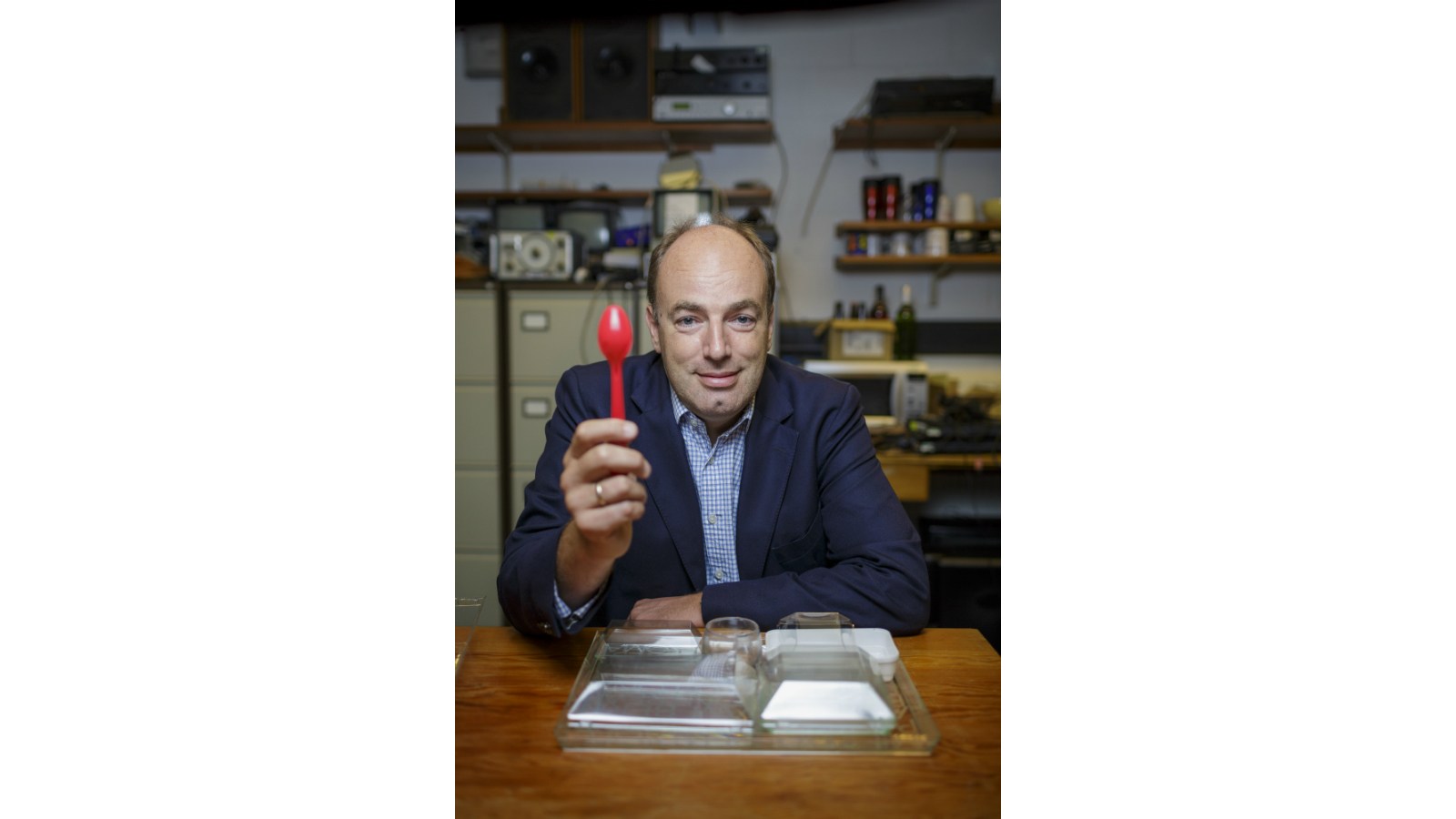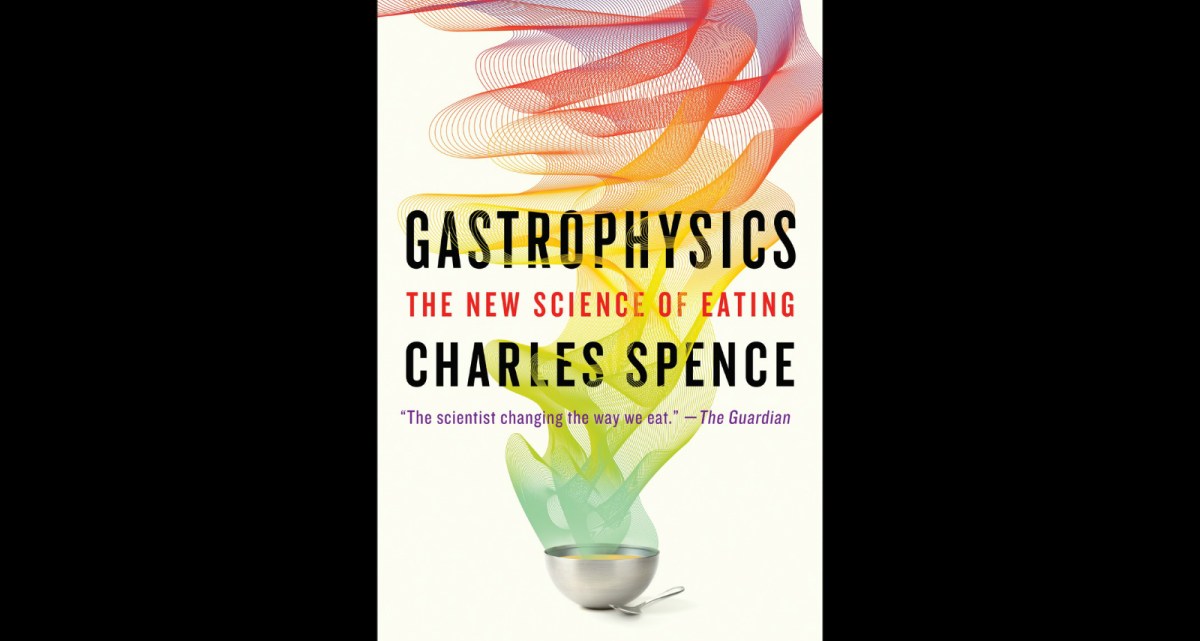In our recent story Was It Something I Hate?, we explored some of the science behind the foods we love and loathe. Experimental psychologist Charles Spence, head of the Crossmodal Research Laboratory at the University of Oxford, recently published a new book, Gastrophysics: The New Science of Eating, which explores this very topic: What factors play into our overall enjoyment of food—from our senses to our moods and expectations? In this excerpt from the book, Spence discusses how and why individuals experience tastes and smells differently.
Tell me, what does coriander (or cilantro) taste like to you? Do you love it or loathe it? The majority of people, it has to be said, like its fresh, fragrant or citrusy characteristics. Others, by contrast, are convinced that it tastes soapy (some even describe spinach as soapy too). It reminds them of dirt, bugs or mould, they say. Those in the latter camp will typically avoid any food containing what John Gerard, writing back in 1597, called a ‘very stinking herbe’ with leaves of ‘venemous quality.’ So who is correct? What does coriander really taste of?
Both sides are right, though more of the population fall into the former category. Most of us—80% or more—are likers, the exact figure depending on the ethno-cultural group tested. Are those on the soapy side of the spectrum simply unable to detect one of the many compounds that make up the distinctive flavor of coriander? Or perhaps those on the citrusy side are anosmic to something (‘anosmia’ being the technical name for being unable to smell some volatile chemical or other). No one knows for sure! What is more, there is even uncertainty about whether that soapy sensation should itself be characterized as a taste, an aroma or something else entirely. Whatever it is, it doesn’t seem to fit any of the commonly recognized basic tastes.
It is worth noting here that something like one in every two people can’t smell androstenone, an odorous steroid derived from testosterone. They are anosmic to this particular volatile organic molecule. Meanwhile 35% of the population find that it has a very powerful—and deeply unpleasant—stale, sweaty, urine smell. (This is the reason why male pigs are castrated, i.e., to minimize the unpleasant aroma known as ‘boar taint.’) Worse still, the individuals in this group tend to be exquisitely sensitive to this compound; some can detect it at concentrations of less than 200 parts per trillion. The remaining 15% or so of the population, well, they say that it smells sweetly floral, musky and/or woody. Some people (like me) experience the smell simply as chemical-like. Same molecule: completely different experience!

The prevalence of these genetic differences in the worlds of taste/flavour perception varies by region and culture. So, if you had to guess, in which part of the world do you think the likelihood of people perceiving the urinous note in their uncastrated pork meat would be highest? I have heard that it’s the Middle East—i.e., exactly the place where religion bans pork as a legitimate source of food. Just mere coincidence, you think? Seems unlikely, doesn’t it?
Coriander and androstenone are just the tip of the iceberg as far as genetically determined differences are concerned. That is to say, every one of us is anosmic to some number of compounds, many of which are associated with food. So, for instance, our sensitivity to isovaleric acid (a distinctive sweaty note in cheese), ß-ionone (a pleasant floral note added to many food and drink products; think of the fragrance of violets), isobutyraldehyde (which smells of malt) and cis-3-hexen-1-ol (which gives food and drink a grassy note) all show a significant degree of genetic variation, and roughly 1% of the population are unable to smell vanilla.
What I’m hinting at is that we all live in very different taste worlds. Some people are able to detect bitterness in food and drink where others taste nothing (this group are commonly referred to as supertasters). Supertasters may have as many as sixteen times more papillae on the front of their tongue as others (known as non-tasters). Not only do people vary in terms of their sensitivity to bitterness but also—to a less pronounced degree—in terms of their perception of saltiness, sweetness, sourness and oral texture. Taster status, like odour sensitivity, is largely heritable (i.e., genetically determined). In fact, back in the 1930s, scientists were thinking of using this taste test as a paternity test. And beyond these individual differences in sensitivity to the basic tastes, we all vary quite markedly in terms of our hedonic responses too. So, for example, there are those who are sweet likers, whereas others (including myself) are best classified as being more ambivalent about sweetness.
But why should bitterness be the taste for which individual differences are most pronounced? Why are the individual differences not so apparent for the salt, sweet or sour tastes? It is likely that individual differences in sensitivity to bitterness may have been especially important for our ancestors. In times of plenty, the supertasters would have had a competitive advantage, since they would be unlikely to ingest something bitter and hence potentially poisonous. By contrast, in lean times, it would have been the non-tasters who had a slight competitive advantage, since they would have been more likely to ingest those bitter foodstuffs that happened not to be poisonous and hence less likely to starve to death. It is a little harder to make such an argument for the other tastes.
However, a liking for bitter-tasting foods (associated with supertaster status) also correlates with psychopathic tendencies! Or, as the authors of one recent study put it: ‘General bitter taste preferences emerged as a robust predictor for Machiavellianism, psychopathy, narcissism and everyday sadism.’ Though, of course, it is important to note that correlation is not causation—you are not necessarily a psychopath should you be one of those who likes bitter-tasting food and drink. Intriguingly, the latest research shows that tasting something bitter can give rise to increased hostility. By contrast, tasting something sweet can apparently make you feel more romantic and increase the likelihood of you agreeing to go on a date. Even more remarkably, those who are thinking about love will rate water as tasting sweet. And going a step further, marketing professor Baba Shiv and his colleagues in California have reported that handling large amounts of money can change people’s taste thresholds. Once again, the sense of taste turns out to be so much more than merely a matter of taste.
This excerpt has been condensed from Gastrophysics: The New Science of Eating by Charles Spence, published on June 20th by Viking, an imprint of Penguin Publishing Group, a division of Penguin Random House LLC. Copyright © 2017 by Charles Spence.

